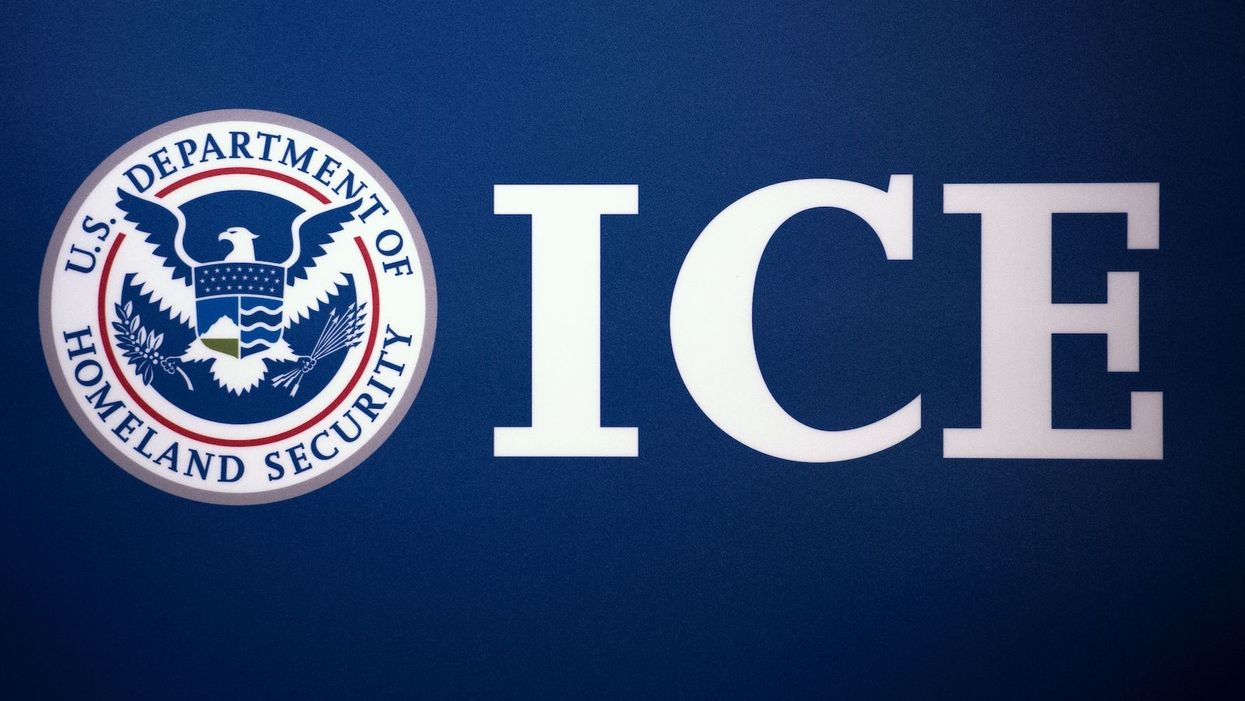
PAUL J. RICHARDS/AFP via Getty Images

'I haven't got one wrong yet'
While ICE has been barred from making immigration arrests of illegal aliens in courthouses around the country, one local judge in Ohio has been calling the agency himself when he suspects someone isn't in the country legally.
USA Today reports that Judge Robert Ruehlman, a common pleas judge in Hamilton County Ohio, says he acts on hunches for when to call Immigration and Customs Enforcement to look into defendants who might be illegal immigrants.
"They're committing a crime by being here illegally, and then, if they're in front of me, they've allegedly committed a felony," Ruehlman told the Cincinnati Enquirer last week. In such a situation, "I set a high bond and I call ICE," he explained.
And despite acting on hunches, Ruehlman says "I'm batting a thousand. I haven't got one wrong yet."
So what informs those hunches? "They're from Mexico. They have an interpreter. They're charged with having a lot of drugs they brought from Mexico," Ruehlman told WLWT-TV. "I mean, it's pretty obvious they're illegal."
The judge's admission comes after WCPO-TV reported earlier this month that ICE agents had been entering the Hamilton County Courthouse to conduct arrests without the knowledge of the local sheriff or clerk of courts.
"My office was not aware of this activity — nor would I be aware of it — because my office is not responsible for security in these courtrooms," Sheriff Jim Neil said in a statement to the station. "Furthermore, my office does not have a partnership of any kind with ICE regarding these types of enforcement actions."
This contrasts starkly with the approach taken by the presiding and administrative judge for Common Pleas Court, Charles Kubicki, who says in the USA Today story that he "never" calls ICE on defendants and doesn't "know their number." He explained to the newspaper that he would feel no obligation to report someone even if they admitted to not having legal status in the country.
In a statement to the Washington Post over the weekend, ICE spokesman Khaalid Walls says that, per current policy, courthouses are not considered "sensitive locations," such as churches and schools, where enforcement operations are typically discouraged.
"ICE officers have been provided broad at-large arrest authority by Congress and may lawfully arrest removable aliens in courthouses," Walls' statement reads. "This arrest authority is central to ICE's mission, which focuses first on criminal aliens."
The Congressional Hispanic Caucus said Friday that Ruehlman's actions are "clear racial profiling" and that ICE shouldn't even be contacted by judges because such actions "foster insecurity, fear, and distrust in immigrant communities, and contribute to eroding public trust with law enforcement."
Ruehlman, however, defended his actions to WCPO, saying, "It's not racial profiling. It's just common sense." He added that he calls ICE around "10 to 20" times every year.
Meanwhile, officials in multiple states and lower jurisdictions around the country have been trying to keep ICE agents from doing their jobs at courthouses for some time now. In November, U.S. Attorney General William Barr and acting Department of Homeland Security Secretary Chad Wolf called on two such states — Washington and Oregon — to reject these kinds of anti-enforcement policies, which the two said were "dangerous and unlawful."